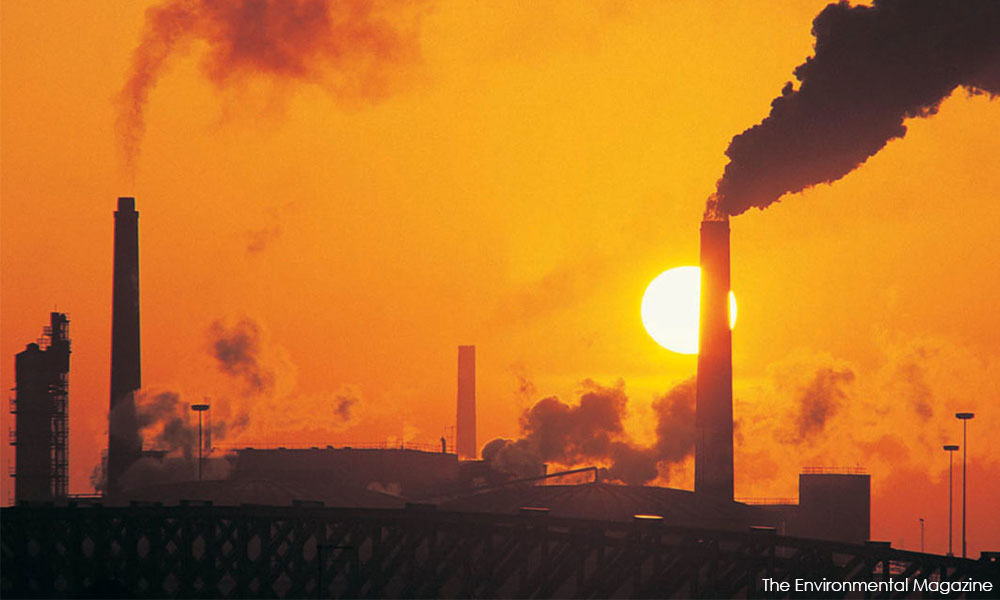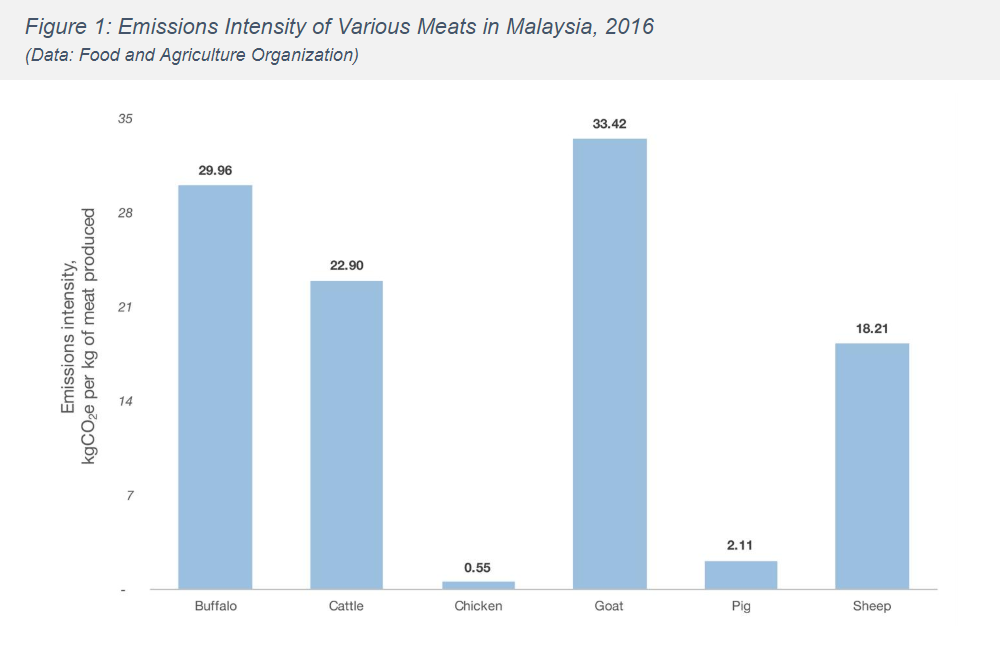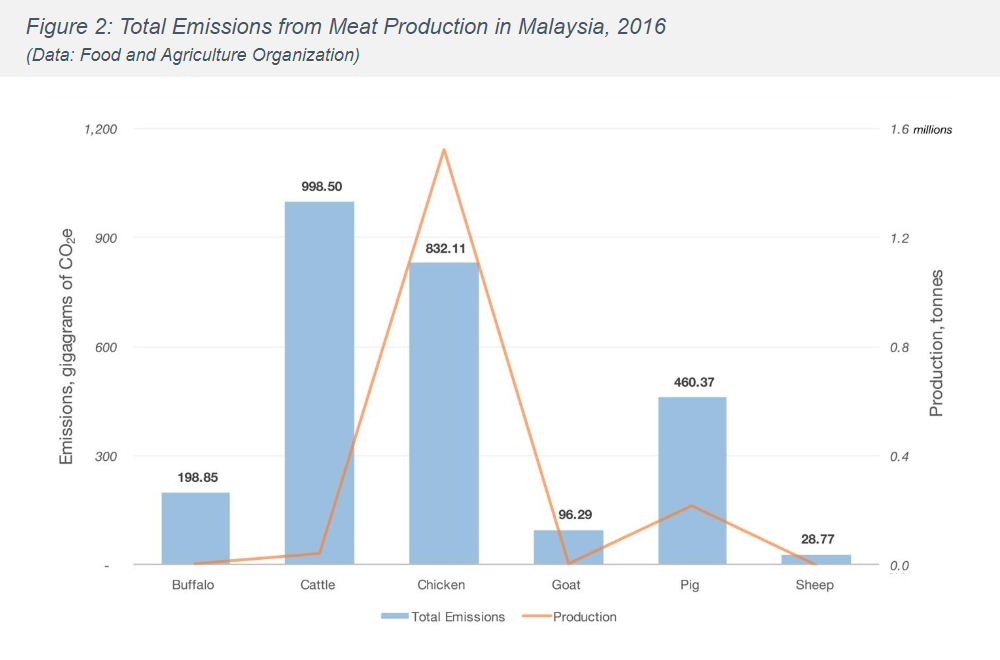COMMENT | The Merdeka Centre found in 2016 that 81.3 percent of Malaysians recognise climate change as a problem that requires immediate attention, with over half this group believing they could do more to combat the issue.
If you are amongst this subset, take (dis)comfort in the fact that you are not alone. We often receive either insufficient or misdirected information on how best to aid the fight against climate change.
In some cases, we take steps which on the surface sound logical and worthwhile, but are in reality not effective.
Recycling, for example, has been for decades exemplified as the beacon of environmentalism.
Evidence, however, suggests that it is often wastefully expensive, and is also very inefficient in the case of certain materials such as plastics glass, textiles, rubber and leather.
Not that you shouldn’t recycle at all; it is for paper, cardboard and most metals that its benefits are most pronounced.
Still, more effective measures would instead target reductions in overall waste by altering public attitudes and behaviours toward waste management, limit the use of non-biodegradable products like plastics, and work towards suppressing the emissions intensity of production processes in the first place.
The fundamental cause of climate change is the growing concentration of CO2 in the atmosphere; cutting total emissions matters most.

With this in mind, the set of actions you may take to efficiently and effectively tackle climate change consequently narrows to a few simple, but meaningful options.
It is critical, however, to keep in mind that effectively tackling climate change requires behavioural changes not just of us as a societal body, but of all economic actors. For any mitigatory action we take, options exist for big business and the government to make their own, larger contributions.
Invest in, generate electricity from clean energy
Clean energy ranks amongst the most effective options we have in making a decisive difference in mitigating climate change.
Electricity generation is the largest single contributor to greenhouse gas (GHG) emissions almost everywhere across the world, including Malaysia, driven by a reliance on fossil fuel inputs such as coal and natural gas.
Coal emits roughly 900g of CO2e (CO2 equivalent) per kWh of electricity it generates; natural gas around 490g.
Solar, on the other hand, whether rooftop, concentrated, or utility-scale, produces no more than 48g per kWh – a 95 percent reduction on coal, and 90 percent on natural gas.
The more we invest in solar panels, the lower our dependence on dirty fossil fuels to keep the lights on. We could even use more electricity and have a smaller carbon footprint.
Recent changes to the Net Energy Metering (NEM) scheme announced by the Energy, Science, Technology, Environment and Climate Change Ministry (MESTECC) should, in theory, help.
Under this policy, households with solar panel installations are able to sell excess, self-generated electricity back to Tenaga Nasional Bhd (TNB) at the same rate they would otherwise purchase it.
Projections of payback periods range from 6.5 to 10 years, depending on variations in system capacity and household electricity usage.
This is an entirely respectable figure, with benefits greater yet from an environmental perspective. Those who can afford to make these long-term investments today should do so.
For the rest of us, there is much scope for future reductions in the generation costs of residential solar energy, and with time payback periods will shorten further.
Policymakers should still do more to promote the democratisation, decentralisation and decarbonisation of electricity generation in Malaysia.
Adoption of NEM remains sluggish; as of today, under 37MW of the policy’s available quota of 500MW for 2019 and 2020 has been taken up.
With the cost of solar PV systems currently running into the tens of thousands of ringgit, prospective investors may be put off.
Favourable access to financing would help; MESTECC should arrange with financial institutions the creation of new classes of loans dedicated towards investment in low-carbon technology, particularly in electricity generation.
In an era of looming disruption within the electricity sector, policies must be put in place to encourage a swift uptick in residential and commercial contributions of clean, self-generated power to the grid.
Consume less meat, particularly beef
The environmental footprint of meat is staggering. Livestock accounts for 70 percent of all agricultural land, and almost a third of all land on earth.
It is responsible for up to 80 percent of deforestation, and almost a fifth of global greenhouse gas emissions - mostly in the form of methane (or CH4, of which it is responsible for 37 percent of anthropogenic emissions) and nitrous oxide (N2O, 65 percent). Both are significantly more toxic than CO2.
The industry accounts for almost a tenth of global water use and is the largest single source of water pollution worldwide – alarming given that the majority of the world’s population is projected to suffer clean water shortages within a decade.
Meat’s impact is driven by a persistently growing demand for meat, and it’s already-vast environmental toll will only bloat until our meat habit is kicked.
There exists significant variation in emissions intensities and total emissions across meat types as seen in the charts below.
There is a drastic disparity between the emissions intensities of chicken and pig meat, relative to meat from ruminants such as cattle, goats, buffalo and sheep.
Switching the source of protein in your next dinner from beef to chicken would curtail the carbon footprint of your plate by almost 98 percent, other things being equal – an even larger reduction than an investment in solar panels, and one that saves money immediately.
While not the most emissions-intensive meat, the issue with beef is put into perspective by total emissions; in 2016 under 44,000 tonnes of beef was produced in Malaysia, relative to 1.52m tonnes of chicken, yet it is the former which is responsible for the highest share of total emissions within the industry at almost a million tonnes.
We can mitigate our individual carbon footprints significantly simply by avoiding red meat, and beef in particular. Going vegetarian would be more effective still.
Yet, most of us are completely unaware of just how significantly our dining decisions affect climate change.
In the presence of such imperfect information, there is room for policymakers to intervene. An option would be to gradually roll out a carbon footprint-labelling scheme at supermarkets and restaurants, initially targetting high-carbon products.
Such a move exposes to the public regularly over time the environmental consequences of their purchases, and may nudge consumers towards sustainable food consumption decisions – while still respecting our free will to decide what does and doesn’t go atop the dinner table.
Drive less often
Of all road transport options, single-passenger cars are amongst the most polluting.
On average, these emit 156g CO2 per passenger-kilometre; even a car shared amongst four passengers still leaves it more polluting per passenger-kilometre than a bus with any more than 20 riders, or a train with any more than 50.
Where possible, we need to choose to use public transport over driving. In Malaysia, a highly-motorised nation where traffic congestion is already a serious problem, such a need is amplified. Over short distances, walking or cycling is our best option.
Many options exist for policymakers to act. Most important is increased investment in integrated public transportation networks across the country.
Ensuring last-mile connectivity is a crucial step towards improving existing networks. At the same time, the public should be incentivised to use public transport in the first place.
Measures which reduce the cost of public transportation and increase those of private alternatives can be effective tools; the MY100 and 50 travel passes are a good start, but more can be done.

The introduction of congestion charges, currently mooted by the government, for the use of private vehicles during peak traffic periods represent a good step towards dampening demand for driving, as would a staged removal of the petrol subsidy – even if this may be a politically contentious move.
Finally, infrastructure must be put in place to make especially densely-populated urban areas of Malaysia more pedestrian- and bicycle-friendly.
Footpaths should be commonplace, and existing roads should eventually be retrofitted to include dedicated bicycle lanes.
At the same time, active effort on the part of Malaysians to walk and cycle more is necessary and overdue.
As with reducing our consumption of meat, these options offer health benefits, and would address, to some degree, the obesity epidemic afflicting our country.
While we take aim at climate change on these three fronts by targetting the very actions responsible for the majority of our individual carbon footprint, we need to ensure a growing importance of the issue on the political agenda.
Politicians typically act when doing so in the interest of their political survival; if a voter base demands strong action on the climate, appropriate policies will follow.
The consequences of unmitigated climate change will be remarkably catastrophic and widespread; we ought to do everything we can, now, even if it means foregoing a bit of short-term utility, to ensure it never comes to pass.
DARSHAN JOSHI holds a Bachelor’s degree in Economics from the University of New South Wales, and a Master’s degree in Public Policy from the University of Chicago. While he maintains an interest in a wide range of topics that fall under the purview of public policy, his passion lies in the analyses of energy and environmental issues. He views climate change as one of the most significant issues to face contemporary society, and strongly believes that the public sector has a critical role to play in the process of decarbonisation. He also firmly believes that comprehensive and transparent data is a crucial component of the necessary advancement of policymaking.
The views expressed here are those of the author/contributor and do not necessarily represent the views of Malaysiakini.



